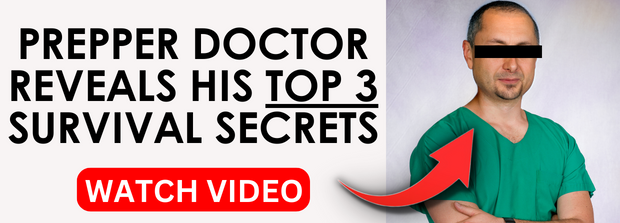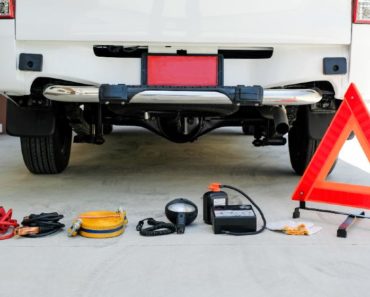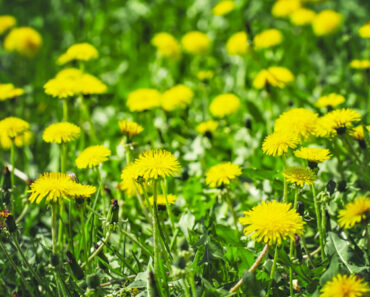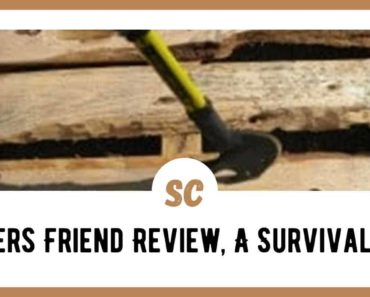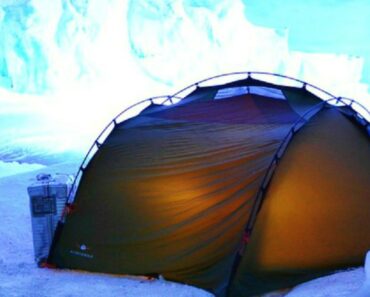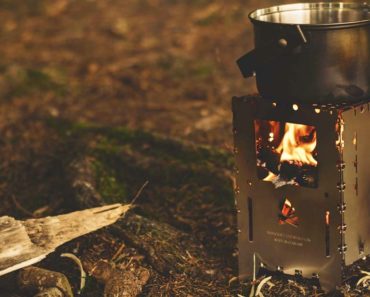It is easy to fall into the trap of thinking idealistically about our survival scenarios. One way we do that is by thinking that the family will be all together, at home, when a disaster strikes. Another way is thinking that we’ll be in prime health, even if we aren’t normally in prime health.
We tend to talk about wounds and injuries in the prepping and survival sphere; but not about sickness and disease. But sickness can be just as debilitating as a serious injury; even more so, because they can affect our ability to think clearly. Yet, even with knowing that disease follows many disasters, we tend to overlook it in our disaster planning.
There is no guarantee that a disaster will only happen when we’re feeling like we’re sitting on top of the world. Neither is there any guarantee that we’ll be able to live through the aftermath of a disaster, without falling ill. Even something we consider fairly minor, like the flu, can put us down and out for days, making it all but impossible to do even the most basic survival tasks. Should we have to defend ourselves, chances are pretty slim that we’ll be able to do so.
There are a lot of things that antibiotics can help with, assuming it is a bacterial infection and not a viral one. People tend to look at antibiotics as a “magic pill,” which will make them better, no matter what. But for antibiotics to work properly requires a proper diagnosis, so that we can administer the right antibiotic for the problem. In a survival situation, without medical facilities or medical labs available, coming up with a proper diagnosis ranges somewhere between zero and none; especially considering that most of us don’t have any medical training.
Don’t get me wrong; I’m not saying that we shouldn’t stockpile antibiotics or that we shouldn’t use them when they are needed. I’m just saying that they aren’t really magic. Some antibiotics work better for some things, and others for totally different situations. We really all need to learn a bit about those antibiotics we’re stocking, so that we’ll have somewhat of an idea of how to use them properly. Of course, the other half of that is learning a bit about diagnosing diseases. I recommend the book “Where There is No Doctor” as a reference for that.
But the issue I want to deal with here, isn’t how to take care of ourselves or our family, medically speaking. I’m not a doctor and so I’m not qualified to talk about that. What I want to talk about is some of the things we can do, as part of our survival strategy, to help ensure we can survive, even while going through a time of illness.
Be Honest with Yourself
People are funny creatures; and one of the ways we’re funny is how we lie to ourselves. Most people do that much more than they lie to others. But who’s going to catch us, right?
One of the ways we lie is about our health. Some people tell themselves they are better than they are, not giving their bodies the rest that they need to recover. This usually leads to a longer sickness, ultimately costing more time than if they had just taken a couple of days to rest. Then there are those who turn every little problem into a major medical emergency, not able to do anything; but expecting others to take care of the. We call these people hypochondriacs.
We can’t afford either of these extremes in a time of crisis. Rather, we need to be able to honestly evaluate our condition and decide what some reasonable limits are, for what we can do. Then we need to keep ourselves within those limits, doing as much as we can, but no more.
You Need a Team
Other than self-defense, sickness and injury are the biggest reason why we need a survival team. Maybe you can survive on your own, when everything is going okay; but if something happens to you, you really need someone there to take care of you, while you recover. Even if a sickness only lasts a few days, that’s a few days when you’re not taking care of the thousand different tasks that are necessary to survive.
Granted, the amount of time that anyone in your team spends sick will probably be minimal. But it will happen. That’s the concern. Preparing for that, by building a survival team, is just one part of prepping.
One of the biggest mistakes that most preppers make in forming a survival team, is that they don’t worry about location. So, they end up with a team that’s spread out all across town. How is that going to work when a disaster comes? Unless you have someplace you can gather, to survive together, then you might as well not bother having a team.
Maintain Your Health
It’s much easier to keep yourself healthy, than it is to get better, once you’re sick. Back in 2020, when the COVID-19 pandemic was at its peak, the authorities were pushing a lot of preventative measures, trying to help keep people from getting sick. While they did a horrible job of conveying their message, the preventative methods they were pushing were solid; not perfect, bug good.
One of the things I did back then was to start taking garlic daily. Garlic is known as a powerful antibiotic, antiviral, and antifungal. Since there are so few antivirals available (the pharmaceutical industry has done poorly here), anything that was available, was worth using. I can’t prove that the garlic kept me healthy; but I didn’t get COVID.
Considering that disease often follows disasters, we preppers need to be the people who keep ourselves from catching whatever diseases are floating around. Being preppers, we have an advantage there, as we’ll be drinking purified water and eating food that isn’t tainted. We’ll also be staying away from others as much as possible, helping to eliminate that possible avenue for disease transmission. But we’ll also need to watch out for rodents, mosquitoes and flies, disease carriers which tend to have a population explosion in the wake of disasters.
Plan to Work Ahead
Somehow, you have to figure times of sickness into your survival plan. One way of doing that is planning on working ahead, when you’re in survival mode. In other words, you shouldn’t be working today on what you need today. Rather, you should be working today on what you’re going to need next week. If you’re working today on what you need today, you’re not just in survival mode; you’re in desperation mode.
I’m talking about things like making sure you’ve got the food you need, firewood cut and stacked by the fireplace or wood-burning stove, enough purified water in the house to keep you going for a week and anything else you’re going to need.
If you think about it, this can be rather tricky in a time of survival. But it’s really the way we should be working anyway, as there’s no way of knowing when bad weather might come along to keep you from doing all the normal tasks associated with survival.
Get Into Natural Medicine
If you’re not already learning about herbal medicine, you should be. Our modern pharmaceutical medicines have their roots in herbal medicines. For that matter, a lot of pharmaceutical research is involved in finding natural compounds in nature, which naturally have a curative effect. Once they find those, they work out a way to synthesize something that is chemically close, but will have the same effect. They need to do that, because they can’t patent something found in nature.
While we’re never going to get the pharmaceutical companies to tell us what they’ve found and where they found it. I see it as good news that most of what they’re working with comes from nature to start with. That tells me that when the credible herbal medicine people say that such a such herb is good for such and such a medical condition, there’s a good chance that they’re probably right.
Of course, it can be tricky finding out who the reliable information sources are. That’s going to require checking them out thoroughly. But if you think about it, pretty much everything we find on the internet needs to be verified anyway. If someone has a good reputation, then they’re probably good. If two or three people have good reputation and are saying the same thing, then it’s probably good information.
The biggest problem isn’t finding the right herbs to take care of a particular need, it’s figuring out dosage. Herbal medicines can be delivered several different ways: teas, tinctures, essential oils and even homemade capsules. From what I’ve seen, the herbal medicine gurus don’t actually give you dosages; that’s something you’re going to have to figure out yourself.
That means doing some experimentation, specifically using the herbs yourself to take care of whatever health problems you have now. Through using them, you’ll get a feel for what works for you and how much you need to take. Then you need to start growing it… or maybe, start growing it first.


